Fair trade with AWEP
Global Ⅾevelopment and Women in Developing Countries
Economic Gap in Asia and Women at Work
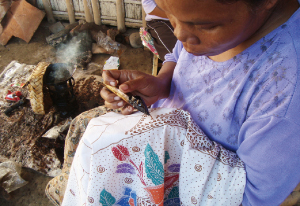
As the neoliberal economy has swept the world since the 1980s, the economic gap between the developed countries in the north and the developing countries in the south has been widening. The developed countries consumed most of the earth’s resources, craving for more to sustain a comfortable lifestyle. The farmers in developing countries however, suffered from serious natural disasters caused by global warming, and free access to water and electricity is not available Developed countries have given aid to developing countries for growth but, advanced machines are only accessible to minority. Women have been working the traditional way, but the economic development has driven them to work outside their home and migrate overseas so they can earn more.
Working not in overseas but hometown where I can be with my children
Launching the Asian Women’s Independency Project … Women Working Together
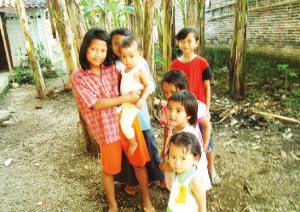
There were no jobs in the Philippines and the jobs that are available for women abroad were limited to “reproduction labor" such as domestic work, entertainers and laborers workers. Young women came to Japan as entertainers since 1980. One of the problem during that time is the pregnancy and the abandonment of the father upon return to their home country. Making the child illegitimate without the child support from the Japanese father. Upon learning about this problem from a group in the Philippines who were supporting the mothers and their children. We formed the Asian Women’s Independency Project in 1994 to support those women from the side of Japanese organization. We proposed to the women in the Philippines to make products in their locality so that they can work without leaving their children for abroad, which paved the way to the launch of “IGP" (Income Generation Program) for women.
For the Empowerment of Women
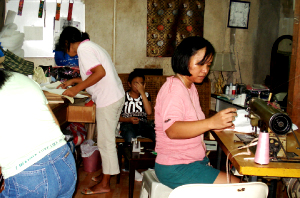
When the Asian Women’s Independency Project began selling handmade products made by women in the Philippines, the term “fair trade" had not yet become common. In 1995, while taking the issues of disparity between the South and the North, and the development and women, the United Natns World Conference on Women was held in Beijing and an NGO forum was held at the same time. In this forum, women from around the world gathered to discuss and solve the issues on women’s rights.
We also participated in the Beijing Women’s Conference and brought products made by Filipino women. In this conference, people from Asia, Africa, and Latin America showcased and sold products that were unique to their regions. From there, we realized the great opportunity to sell handmade products using local items and traditional method to empower and encourage independence in women. e Here in Japan, we started selling our products in bazaars and events. But after participating at Hyogo Prefecture’s community business take-off support project, we have reached a point where we can proclaim our products as a full-fledged business. Since then, we have started selling locally made products made by Asian women as fair trade products.
How Fair Trade Works
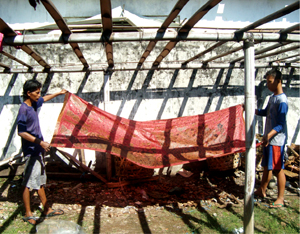
Fair trade organization connects fair trade producers and consumers.
By dealing directly with the producers, Fair trade organizations were able to minimize intermediate costs. Then purchase the products directly from the producers at a fair price to cope with the rising costs of raw materials and labor, and sell them director wholesale tto fair trade stores in Japan.
It is necessary to be able to explain the details of transactions between producers, fair trade organizations, and fair trade stores. And be able to stabilize production by continuing transactions as much as possible, while communicating producers’ circumstances to consumers and vice versa and nurturing these relationship.
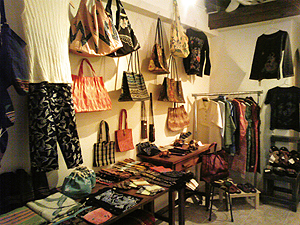
This is the kind of relationship built and founded that made the difference between fair trade products and the products sold in Asian grocery stores in town. Buying fair trade products in the stores through fair trade organizations supports the livelihood of small-scale local producers. More so, by connecting with the buyers, not only can the producers` boost their confidence, it can also lead to increased productivity.
